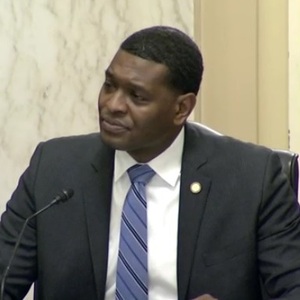Senators question Regan on biofuels, RFS

April 28, 2021
BY Erin Krueger
Sens. Debbie Stabenow, D-Mich., and Joni Ernst, R-Iowa, questioned U.S. EPA Administrator Michael Regan on his agency’s views towards biofuels and the Renewable Fuel Standard during an April 28 hearing held by the Senate Committee on Environment and Public Works to consider the EPA's proposed budget for fiscal year 2022.
Stabenow voiced appreciation for the EPA’s February 2021 announcement that it now supports the Tenth Circuit Court of Appeal’s January 2020 ruling on small refinery exemptions (SREs) and asked Regan to discuss the agency’s backlog of RFS-related rulemakings.
Advertisement
Regan confirmed that the EPA believes the Tenth Circuit Court’s reading of the law is correct. That decision held that the EPA cannot “extend” exemptions to small refineries whose earlier, temporary exemptions had lapsed. Regan noted that the Tenth Circuit Court’s decision is currently being reviewed by the U.S. Supreme Court and confirmed that the agency is awaiting Supreme Court’s decision and will governor itself accordingly and follow the law with respect to its treatment of SREs.
Regan also confirmed that there is a backlog of rulemakings related to the RFS’s renewable volume obligations (RVOs). “We are working on that backlog, but there is a lot of time we need to make up,” he said. “We are focused on ensuring the intent of the RFS is met and that EPA does its part.”
Ernst cited recent studies that have found first-generation conventional corn ethanol achieves greenhouse gas (GHG) reductions of nearly 50 percent when compared to gasoline. When properly administered, she said the RFS has the ability to dramatically reduce emissions from the transportation sector. She said, however, that she is growing increasingly concerned that every time a member of the Biden administration talks about biofuels it is in the context of new fuels and new markets, such as aviation and marine fuels. Ernst asked Regan to set the record straight on the administration’s commitment to ethanol and biodiesel.
Advertisement
Regan stressed that Biden has indicated from day one that agriculture has a seat at the table when it comes to climate goals. “Secretary Vilsack and I are having these conversations…There is no intent in terms of exclusion when we talk about the promising future of electric vehicles or when we talk about the promising future of advanced biofuels,” he said, noting that the administration knows ethanol plays a significant role in providing those resources here and now and “will evolve as we start to look at the new futures for advanced biofuels and electric vehicles.”
Regan said the EPA is engaging with those in the ag community to best determine where they think the markets will go and best understand what they believe the evolution of ethanol will be. “It’s our jobs to ensure that that vision coincides with the vision that we see for the lowest carbon economy in the future,” he said.
A full replay of the hearing is available on the Senate Committee on Environment and Public Works website.
Related Stories
The U.S. EPA on July 8 hosted virtual public hearing to gather input on the agency’s recently released proposed rule to set 2026 and 2027 RFS RVOs. Members of the biofuel industry were among those to offer testimony during the event.
The USDA’s Risk Management Agency is implementing multiple changes to the Camelina pilot insurance program for the 2026 and succeeding crop years. The changes will expand coverage options and provide greater flexibility for producers.
EcoCeres Inc. has signed a multi-year agreement to supply British Airways with sustainable aviation fuel (SAF). The fuel will be produced from 100% waste-based biomass feedstock, such as used cooking oil (UCO).
President Trump on July 4 signed the “One Big Beautiful Bill Act.” The legislation extends and updates the 45Z credit and revives a tax credit benefiting small biodiesel producers but repeals several other bioenergy-related tax incentives.
CARB on June 27 announced amendments to the state’s LCFS regulations will take effect beginning on July 1. The amended regulations were approved by the agency in November 2024, but implementation was delayed due to regulatory clarity issues.
Upcoming Events










